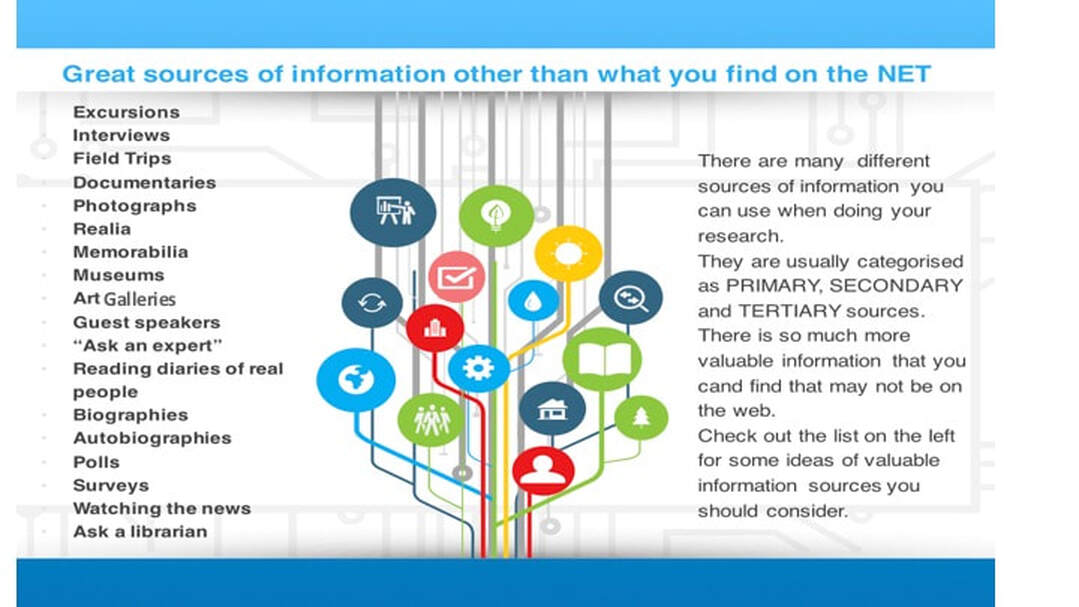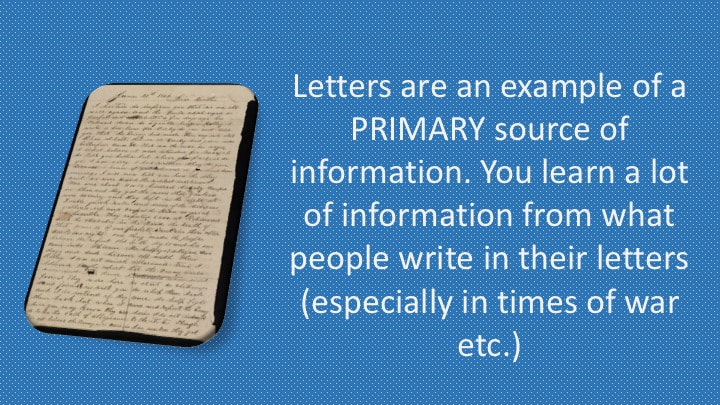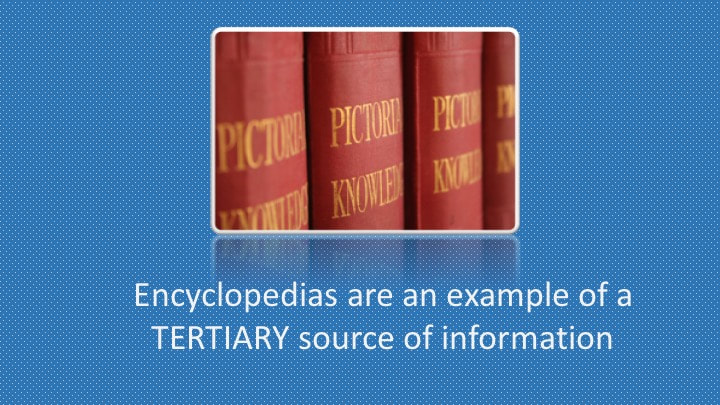Sources of Information
WHAT DIFFERENT TYPES OF INFORMATION ARE THERE?
There are many different types of information you can use when doing research and many different places you can look to get the information you need.
Information can be divided into three main categories: Primary, Secondary and Tertiary. Have a look at the examples provided below.
There are many different types of information you can use when doing research and many different places you can look to get the information you need.
Information can be divided into three main categories: Primary, Secondary and Tertiary. Have a look at the examples provided below.
|
PRIMARY SOURCES OF INFORMATION
Information that comes directly from the source or observation of an event can be very valuable as it has not been altered or edited by others. This includes: * Interviews / Guest Speakers / Speeches * Survey results * Excursions * Original documents and photographs * Realia (Models etc) * Artifacts * Diaries / Memoirs and autobiographies * Data sets, technical reports, experimental research results, report findings * Novels, plays, poems, and works of art SECONDARY SOURCES OF INFORMATION Secondary sources analyze, review or restate information in primary resources or other secondary resources. The most common secondary sources of information you will use include: * Biographies * Review articles and literature reviews * Journals * Scholarly articles * Newspaper articles * Historical studies TERTIARY SOURCES OF INFORMATION Tertiary resources provide overviews of topics by synthesizing information gathered from other resources. Tertiary resources often provide data in a convenient form or provide information with context by which to interpret it. Examples include: * Encyclopedias * Chronologies * Almanacs * Directories * Textbooks |



